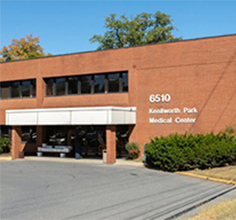
Anxiety is something we all experience from time to time. It's that feeling of nervousness or dread that sneaks in before a big presentation, during an argument, or when facing an uncertain future. In moderation, it’s completely normal and even helpful in keeping us alert and ready to face challenges.
However, anxiety goes far beyond the occasional stress for many people. It becomes overwhelming, persistent, and disruptive, affecting nearly every part of life. If this sounds familiar, you’re not alone. According to the American Psychiatric Association, almost 30 percent of adults will struggle with an anxiety disorder at some point in their lives.
The good news is that anxiety is treatable, and with the right strategies, it can be managed. In this brief article brought to you by the primary care doctors at Southern Maryland Medical Group, we explore some practical ways to find calm when living with anxiety.
One of the simplest, yet most effective ways to relax when anxiety strikes is by focusing on your breath. Anxiety can make you feel like your world is spinning out of control, but your breath is always something you can come back to.
Sit or lie down in a comfortable position. Slowly breathe in through your nose, filling your lungs with air, then exhale slowly through your mouth. Aim to make your exhale longer than your inhale, which helps activate your body's relaxation response.
Anxiety often pulls us into the future, making us worry about things that haven’t happened yet and may never happen. Grounding exercises can help bring your mind back to the present moment, where things are likely much calmer. Try the 5-4-3-2-1 method:
This simple exercise helps redirect your thoughts away from anxiety and back into the present, grounding you in the moment.
When you’re feeling anxious, your body stores up that nervous energy. Releasing it through movement can provide a great sense of relief. You don’t have to engage in an intense workout for it to be effective either – gentle movement can work wonders, too. Consider yoga, walking, or tensing and then slowly relaxing each muscle group in your body.
While it’s impossible to eliminate all sources of anxiety, paying attention to what triggers your anxiety can help you manage it. For instance, try to reduce caffeine and sugar. Both caffeine and sugar can exacerbate feelings of anxiety by increasing your heart rate and jitteriness. You might also want to set boundaries on social media. Constantly scrolling through social media or the news can be overwhelming and fuel anxious thoughts.
Anxiety can make you feel isolated, but connecting with others can be incredibly healing. Whether it’s talking to a friend or family member, joining a support group, or seeking help from a therapist or primary care physician, don’t hesitate to reach out.
Southern Maryland Medical Group has 3 convenient locations to provide professional medical care services in the Southern Maryland area. Call or schedule an appointment with one of our locations to get medical care help.

5801 Allentown Road, Suite 400 Camp Spring, MD 20746
Phone: 301-868- 0150
Billing Inquiries: 301-552-1270
Fax: 301-868-0243

7500 Greenway Center, Dr #1200 Greenbelt, MD 20770
Phone: 301-486-7580
Billing Inquiries: 301-552-1270
Fax: 301-486-7581

6510 Kenilworth Ave, Ste 1400, Riverdale MD 20737
Phone: 301-618-0771
Billing Inquiries: 301-552-1270
Fax: 301-618-0772